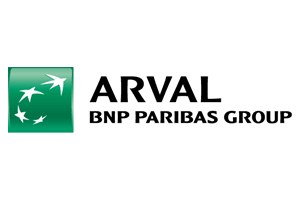Unsurprisingly, given the current pandemic, more people are choosing to spend their summer break in the UK or European countries that are easy to drive to this year, to avoid busy public transport hubs like train stations and airports.
Last week RAC Europe reported that more people than usual are set to drive abroad this summer, with their research suggesting five million are set to drive on the continent this summer. Around 1.5 million of these are expected to be driving abroad for the first time.
If you’re thinking of driving to your next holiday instead of flying, then there are a few things you’ll need to know.
Driving Rules:
Although the general rules of the road are universal across the world there are a few key differences you’ll want to make a note of to ensure you’re always on the right side of the law.
The first is to keep to the right side of the road, literally. Other than the UK every other country in Europe drives on the right-hand side of the road so you will need to make sure that you do as well when driving abroad.
Most European countries use kilometres rather than miles, which you’ll need to remember when looking at speed limits.
If you have teenagers who have recently passed their driving test then you’ll also need to be aware that in some countries the legal driving age is 18 years old.
For a full breakdown of the legal requirements for the country you are visiting you can look at the UK government’s guidelines which will direct you to the laws for each.
Documents:
As well as being aware of local laws you may also need to carry different documents and equipment to what you would usually have in the car at home.
Before you travel you should always make sure your vehicle’s tax is up to date and that the MOT is not due during your trip.
Whatever country you’re planning to drive to you’ll want to make sure you have:
- Your full valid driving licence
- The insurance documents for the vehicle
- Travel insurance documents
- European breakdown cover number and policy documents
- Proof of ID (passport)
- V5C (log book) or alternative
You might also need to take your national insurance number.
After Brexit, it’s likely you’ll need additional documents as well. These are likely to be an insurance green card, one or more international driving permits and a separate GB sticker on your vehicle. This hasn’t yet been confirmed and we’ll update you once the rules are clarified.
In most European countries you will currently need to have a GB sticker if you do not have a GB licence plate.
Taking a Lease Vehicle Abroad:
If your current car is a lease vehicle then there are some additional documents you will need to get, as you are not the legal owner of the vehicle.
With a lease vehicle, you are not the registered owner or keeper of the car and so will not get the V5 certificate. A VE103 is a certificate of hire that shows you are entitled to drive the car and you will need to carry the original document when travelling.
In order to provide you with a VE103 certificate most funders will ask for the below info:
- The vehicle registration
- Dates of travel
- Countries visiting
- Drivers’ full name (as appears on licence)
- Drivers’ full address (as appears on licence)
VE103s will usually last for a year, but you may need to request another if there is a change in driver details.
You will need to make sure you contact your funder in time for the VE103 to be received in the post as you need the original document when travelling abroad. Some funders advise you contact at least 28 days before you travel to ensure you receive this in time.
Please note that there is usually a charge for the VE103 process from your funder. When you contact them to request the documents your funder will confirm the cost of this for you.
Equipment:
In some countries, it is a legal requirement to keep additional equipment in your car that is not necessary in the UK.
Most countries across Europe require you to have a warning triangle in case of breakdowns, and several also require you to have reflective jackets for all passengers to wear as well.
In France, Germany, and Austria it is a legal requirement that you have a first aid kit in your car, and France also require you to carry a breathalyser kit.
Several countries also require you to have headlight beam deflectors, either by manually adjusting them or deflector stickers depending on the car.
They’re not compulsory but you might also find the below items useful to take with you:
- Fire extinguisher
- Torch
- Replacement bulbs
- Fuel can
- Additional oil / water to top up if required
- A useable spare wheel, and jack to be able to change it, or tyre inflation kit
- Jump leads
- Locking wheel nut key
- Sun cream
- Blanket
- Drinking water
- Photocopies of your important documents

Coronavirus:
Due to the current pandemic countries around the world have tightened their rules on travelling in and out of their borders and this also includes driving.
Before travelling anywhere you should check the foreign travel advice section of the GOV.UK website for up to date advice on travelling to all European countries.
Brexit:
Travel between the UK and the rest of the EU will remain the same until the 31st of December 2020 whilst the UK and EU negotiate on new travel arrangements.
We’ll update you when we have any further information on driving in the EU next year but for now you can drive there just like usual provided you follow any Covid restrictions.
Click here for our full guide to travelling with a lease car, which breaks the process down by each of our funders. Alternatively, you can call our Support Team on 0330 221 0000 and they’ll be able to help.









Leave a Comment